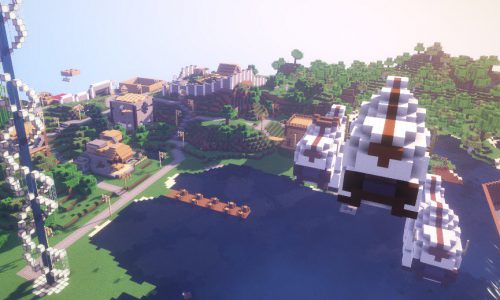It’s not quite as rare as you might think for a game to have mechanics that aren’t actually fun when looked at by themselves, but when viewed as part of the overall game as a whole, serve to define the experience and make the game what it is. There’s no light without shadow.
With that in mind, we turn to Sunless Sea, a game in which you spend very long stretches of time gliding through the darkness, doing nothing of consequence, waiting to make port and read more story stuff. I’m not the first to argue that the boredom induced by these journeys is actually beneficial to the pacing and feel of the game. You might be motivated to make decisions that go against your own personal morality, purely so that you have something interesting to read. This is one of the game’s most interesting themes, in my opinion, and conveys the experience of being underway on a long voyage away from the sight of land pretty well. There’s a mystery to the sea, even one with sun shining down on it, a sense that the rules of society and reality don’t quite apply with the same force out there. In allowing the player to become bored, in making you long to see port again, the game puts you in the shoes of your character extremely well.
When you make port, you can participate in story events that largely consist of reading some of the finest writing I’ve seen in a game in many years. Occasionally, you make dice rolls based on your skill numbers. Where Sunless Sea far surpasses Fallen London, the game and universe from which it springs, is in its eschewing of repetitive skill-building stories in favor of building skills with a simple one or two line conversation with your ship’s officers. There is also far less filler in Sunless Sea than in Fallen London, far fewer stories where the player is barred from entry for silly reasons like not being a donator or for having skills or reputations that are too low. In Sunless Sea, your only barriers to entry are your resources: the supplies and fuel to make it to where you’re going and back, and the will and patience to wait out the journey. Every story is interesting and precious, and there are an awful lot of them.
The game’s overall tone and aesthetic draws heavily from cosmic horror, with a smattering of sea stories and sailorly superstitions. It’s a compelling mix, and not without its lighter moments, such as Pigmote Isle, where rats and guinea pigs struggle for dominance. Personally, I’m a big fan of the way Hell is interpreted in this game: the Iron Republic, where the laws of nature don’t apply. Cannibalism is of course a major theme, befitting any horror story about seafaring folk, limited resources, and desperation in the dark unknown.
The combat is an afterthought, as are the ship upgrading mechanics, and so too the roguelike elements. The way the game handles succession between players makes zero sense (why do your kids relive the same stories?). This is a game where you learn the mechanics only so much as to serve your goal of going out to sea again, one more time, looking for another story. Don’t let monsters and death distract you from your search.
The expansion, Zubmariner, adds a huge amount of new content, meaning of course, yet more stories. Being able to dive underwater and explore down there essentially doubles the amount of stuff to find and read, and if you intend to pick the game up, I also recommend getting the DLC as soon as you decide this is the sort of game you’re into.


